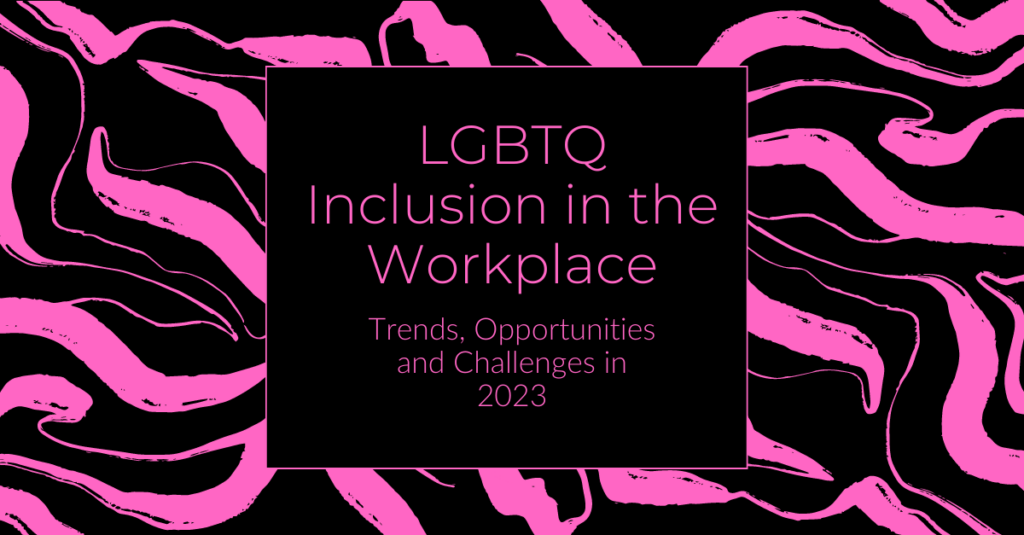
Help! My Boss is Homophobic
You know the saying, people leave managers, not jobs? Well, it’s kind of true. Your workplace might be perfect in every single way, but having a boss that does not recognize your full humanity can ruin the entire experience. Actually, It can be emotionally devastating. The good news is that you have options when it comes to navigating these situations. Some of the options below may not be applicable to you based on your specific context and individual privilege, so we invite you to take what works and leave the rest. No matter what your situation is, never forget that a safe and affirming workplace where you don’t feel the need to hide who you are is a right and not a privilege.
- Understand what homophobia and transphobia Is. Discrimination does not have to be intentional for it to be illegal. If it feels problematic, it probably is. Homophobia isn’t just slurs, it can be a refusal to use your correct name and pronouns, denying your right to express your gender the way you want to, and subtly removing you from work assignments. It can even include things you see your boss posting about on social media. We hear from members of the Trans community that they are often viewed as “untrustworthy” after going through a gender transition. Maybe you’re getting poor performance reviews, but your boss isn’t telling you what you’re doing wrong. If you’re an LGBTQ person of color, you have a whole additional layer of being perceived as incompetent and undervalued. But mind you, it wasn’t until this year in MN that we finally made it illegal to discriminate against people of color for wearing natural hair styles (BFFR!).
- Locate your allies (ideally outside of the org). These could be any individuals that you feel comfortable sharing your experiences with. It doesn’t mean that they are involved in helping you remedy the situation, sometimes it can be helpful simply to have someone to talk to and to validate that something is not ok. Be careful sharing your story with co-workers as that runs the risk of the information being shared more broadly. If you do have trusted people at work who you know will keep your information secure, these are people who can verify your experiences should your situation turn into a formal workplace investigation. Community organizations such as your local LGBTQ Chamber of Commerce, a student organization at your school can also be great support systems. The biggest mistake you can make in this whole process is thinking you can handle it alone or thinking that no one is going to care about your situation.
- Speak Up. If you feel comfortable, and if you sense that your boss may be open to growth, we recommend you speak up and advocate for yourself. Even if it produces no changes, building the muscle of advocating for yourself is a highly valuable skill. Consider role playing a potential conversation between you and your boss with a friend so you can practice your approach. Harvard Business Review has a great article on how to think through where, when and how to speak up. Including sample questions for your homophobic boss such as:
- “What specifically did you mean by that because I’m not sure I got it.”
- “That could be taken wrong — can you explain what you meant?”
- “That’s not okay with me, and I respect you enough to let you know.”
- Document Everything. Save any problematic emails and take photos on your personal phone so that you have multiple copies. If something homophobic occurs in-person, send yourself an email to your home address with the time, date, witnesses and description of the situation. By sending an email to yourself you timestamp it, and this evidence is more credible. If you are fired unfairly, keep track of lost wages as well as expenses incurred in finding another job as these costs could be a part of an eventual settlement.
- Investigate your organization’s process for submitting anonymous employee complaints. See if you can determine which HR leader(s) is responsible for managing employee complaints. They might be an ally. Even if they are not, reporting discrimination is important because it makes it much harder for your employer to claim that they didn’t know about the mistreatment, should your case turn into a formal legal proceeding.
- Know your rights. Title VII of the federal Civil Rights Act of 1964 makes verbal remarks, including slurs, that create a hostile or offensive work environment illegal. Title VII law also covers jokes, comments, or slurs that unreasonably impact an employee’s performance. Title VII only covers employers who have 15 or more people working for them.1 The Equal Employment Opportunity Commission (EEOC) is the federal regulatory body that enforces this law. They accept complaints of discrimination based on sexual orientation and/or gender identity. Your city and state may have additional laws and enforcement bodies. If your employer does work with the federal government, you may have additional protections. Time may be of the essence as some regulatory bodies require you to report discrimination within a certain date of the incident.
- Focus on doing your job well. This one is going to feel deeply unfair, because it is. If you do have a homophobic boss, the reality is that they will be looking for even the slightest mistakes in order to justify your removal from the team. Again, they might be engaged in actively making it harder for you to do your job by blocking off information, resources, and support. Don’t let them win. Make yourself indispensable to your team, document praise you receive from customers and co-workers and make it harder for them to unjustly let you go.
- Request to change teams. Know your options and network with other managers at your organization to assess other internal openings or advancement opportunities. It might be in your best interest to take the initiative and request a role that is a “better fit.”
- Find a local employment attorney that specializes in employment law and workplace discrimination. Contact an attorney who specializes in civil rights law before filing a complaint with the EEOC. They will know how to file the complaint in a way that sets you up for a greater chance of success.
- Leave. Never forget that your most powerful bargaining chip is your time and talent. Not everyone has the luxury of quitting a job, but think hard if you can. How much emergency savings do you have? What is your housing situation and backup options? Mossier has a variety of free resources to help you find a new job and find one quickly. Click here to learn more about our Job Seeker Membership.
DISCLAIMER: This blog post is intended to provide accurate, general information regarding legal rights of LGBTQ persons. Laws and legal procedures are subject to frequent change and differing interpretations. Mossier cannot completely ensure the information in this blog is current nor be responsible for any use to which it is put. Do not rely on this information without consulting an attorney or the appropriate agency about your rights in your particular situation. Mossier will continually provide regular updates to this post based on new and evolving best practices.





